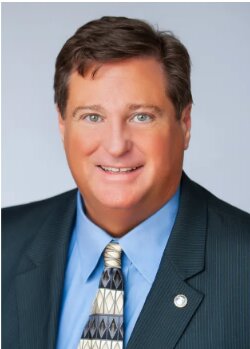Time to Confront Drug Use Among Juveniles
JC BowmanDrug use among juveniles is a serious public health concern. According to the National Center on Addiction and Substance Abuse, at least 1 in 8 teenagers have abused an illicit substance in the last year. The Office of Justice Programs reports that 10.8% of youth aged 12 to 17 were current drug users, having used an illicit drug at least once in the month before being interviewed. Early drug abuse is linked to future substance abuse problems, with the most significant increase in destructive behavior occurring among older teenagers and young adults. Substance abuse is associated with both violent and income-generating crimes by youth. Drug use among juveniles is often influenced by a combination of factors - and the social environment, family dynamics, and peer pressure are significant contributors. Risk factors for high-risk substance use in youth can include a family history of substance use, favorable parental attitudes towards the behavior, poor parental monitoring, parental substance use, and association with delinquent or substance-using peers. Similarly, gang activity often arises from a similar combination of socio-economic factors, lack of opportunities, and a sense of belonging. These issues can be complex and interconnected. We know substance experimentation is not uncommon among young people. Unfortunately, it can indeed lead to some serious consequences. It's a complex issue because adolescence is often a time of exploration and pushing boundaries. Striking a balance between curiosity and responsible choices can be challenging, especially when peer influence and societal pressures come into play. Prevention and intervention strategies should address the root causes, providing support systems and alternatives to at-risk youth. Education and community outreach programs can play a crucial role in steering young people away from drugs and gangs. Our schools are often on the frontlines of juvenile drug use, gangs, and human trafficking. A comprehensive approach involving schools, families, communities, and law enforcement is needed to address the problem. The National Center on Addiction and Substance Abuse at Columbia University revealed that nearly half of public school students know someone who sells drugs at school. Private schools are no longer the exception, with more than fifty percent of private school students admitting that their schools are drug-infected. This is no longer an education problem; it is a societal issue. Schools can only do so much to prevent high-risk drug use. Parents, guardians, law enforcement, and other community members also play a critical role in supporting students and promoting healthy behaviors. The Centers for Disease Control and Prevention (CDC) recommends that schools create safe and supportive environments that connect students to a network of caring peers and adults in school and the surrounding community. The Tennessee State Board of Education (SBE) has provided local education agencies (LEAs) the flexibility to utilize a virtual education program to provide continuity of educational services for students enrolled in an alternative school or alternative program. This allows districts to offer a safe and flexible alternative for students. It allows students to access educational services while potentially avoiding some of the challenges they might face in a traditional setting. Short-term or long-term interventions can be used to address students who have been suspended or expelled. This could easily include virtual programs, alternative programs within the school, or separate facilities that cater to different situations and durations. Magnet or charter schools could be considered to help meet this challenge. It's crucial to ensure that these interventions not only provide needed education but also address the underlying issues contributing to the students' behavioral challenges. This proactive approach to supporting students in making better choices would be a win-win for parents, communities, and students. The focus is on helping rather than penalizing a student for life, is the intent. Open communication and support can make a significant difference in helping students make better choices. Providing counseling and involving parents can make a positive impact on the student's well-being. It's important to acknowledge that seeking help or treatment is a vital step for individuals who are on a dangerous path. It's comforting to know that there are resources available to assist young people in regaining control of their lives and building a healthier future. Everyone deserves an opportunity to overcome challenges and find their way. JC Bowman is the Executive Director of Professional Educators of Tennessee, a non-partisan teacher association headquartered in Nashville, Tennessee. Permission to reprint in whole or in part is hereby granted, provided that the author and the association are properly cited.






